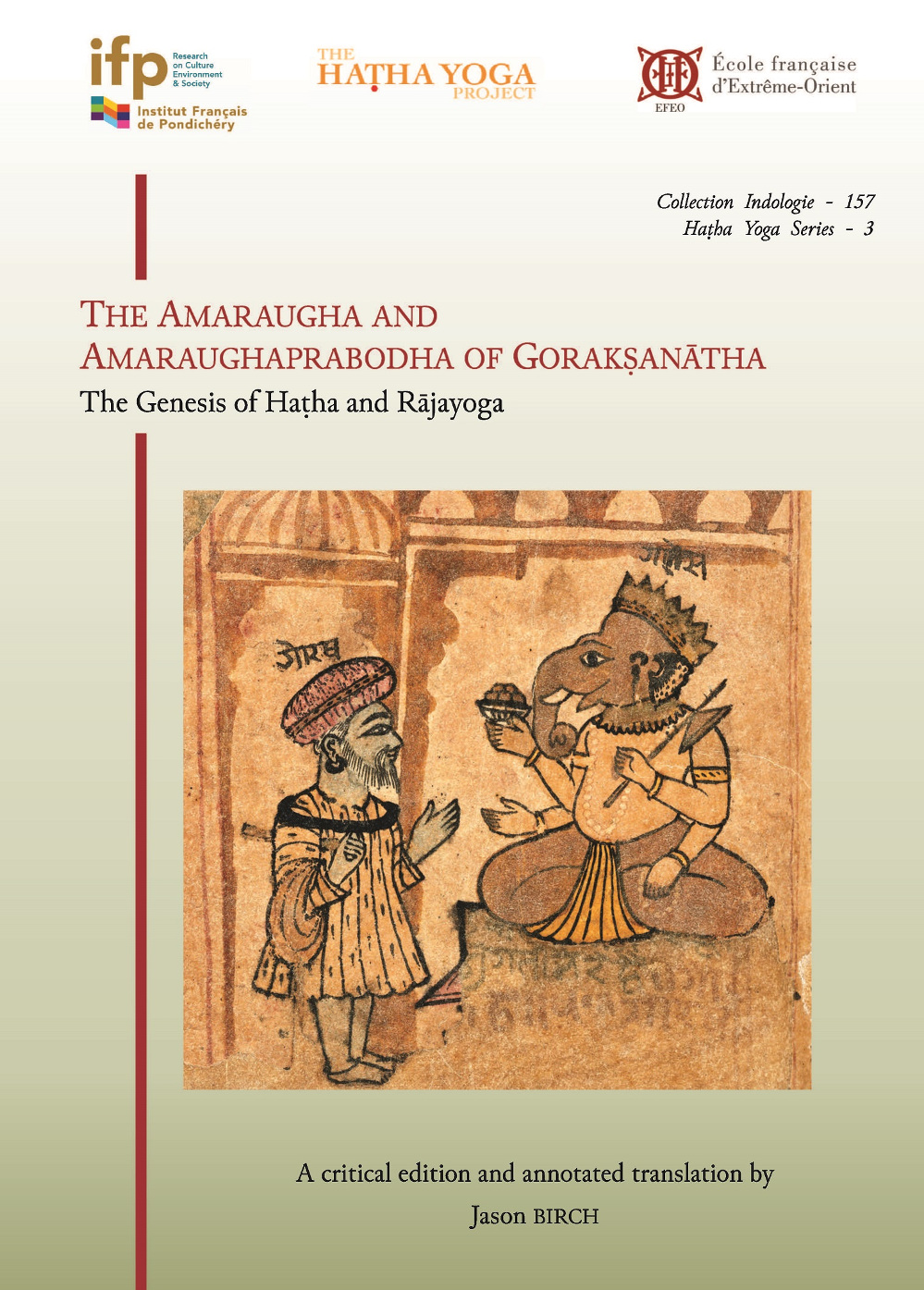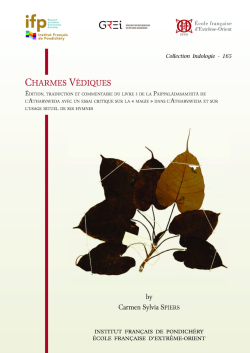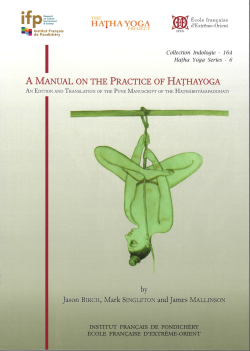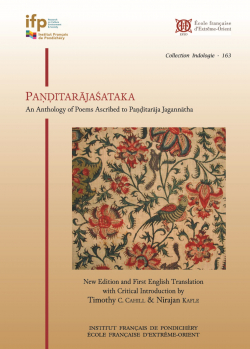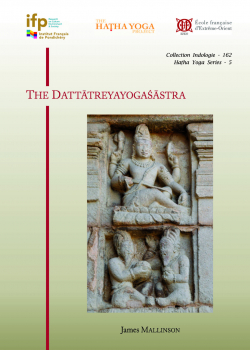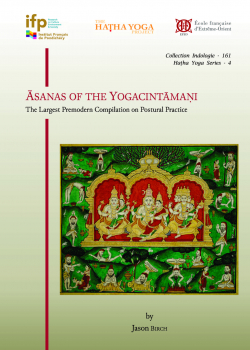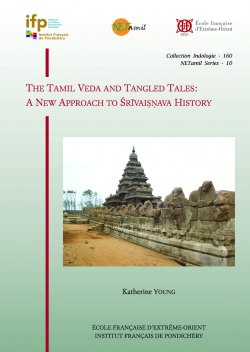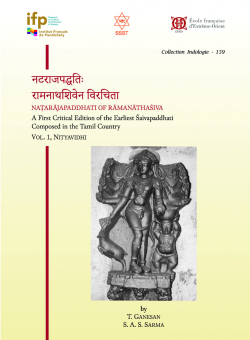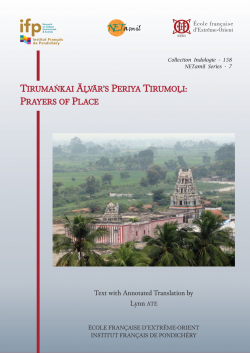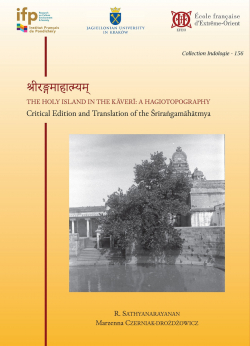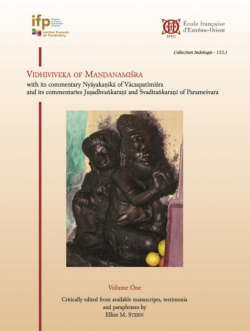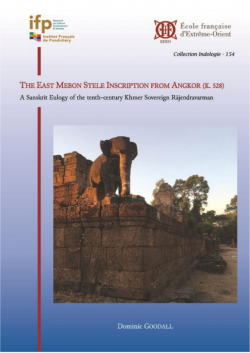The catalog of EFEO Publications includes works on a wide range of disciplines in the humanities and social sciences (archaeology, history, anthropology, literature, philology, etc.), centered on Asia, from India to Japan.
These publications address both specialists, and a wider public interested in Asian civilizations and societies.
The Amaraugha and Amaraughaprabodha of Gorakṣanātha
The Genesis of Haṭha and Rājayoga
Collection : Collection Indologie
Collection's number: 157
Edition: EFEO, Institut français de Pondichéry (IFP)
Publication date: 2024
Status : Available
21,00 €
ISBN-13 : 9782855392639
ISSN : 0073-8352
Width : 17 cm
Height : 24 cm
Weight : 0.38 kg
Number of pages : 176
Distributor : EFEO Diffusion, EFEO Pondichéry Contact : shanti@efeo-pondicherry.org
Geography : India
Language : English, Sanskrit
Place : Pondichéry
Support : Papier
Description :
176 p., English, Sanskrit, paperback
ISBN EFEO : 9782855392639
ISBN IFP : 9788184702507
Collection Indologie n˚ 157
Haṭhayoga series n˚ 3
Abstract
The Lineage of Immortals (Sanskrit Amaraugha) is the earliest account of a fourfold system of yoga in which a physical practice called Haṭha is taught as the means to a deep state of meditation known as Rājayoga. The Amaraugha was composed in Sanskrit during the twelfth century and attributed to the author Gorakṣanātha. The physical yoga practices have a pre-history in a tantric Buddhist milieu but were here adapted for a Śaiva audience. The treatise explains how Śaiva yogis move kuṇḍalinī, unite Śakti with Śiva, and achieve Rājayoga. Three hundred years later, the author of the Haṭhapradīpikā incorporated almost all the Amaraugha's verses on Haṭhayoga into his own work, which became a definitive exposition of physical yoga. The study of the Amaraugha reveals not only the genesis of Haṭha and Rājayoga but also the creation of the most influential model of Haṭhayoga in the early modern period. This book presents the first critical edition and annotated translation of the Amaraugha, as well as a later recension, called the Amaraughaprabodha, with an introduction that explores the profound significance of both works for the history of yoga.
Table of contents
Notes
You can also order this title with our Pondicherry center at the following address:
shanti@efeo-pondicherry.org
Or with the French Institute of Pondicherry at the following address:
library@ifpindia.org
Orders to India must be placed with our center in Pondicherry or the French Institute of Pondicherry.
Related books
Collection Indologie
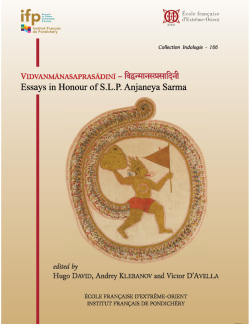
Vidvanmānasaprasādinī
S.A.S. SARMA, Dominic GOODALL, Harunaga ISAACSON, Suganya ANANDAKICHENIN, Hugo DAVID, Kei KATAOKA, Victor D’AVELLA, Giovanni CIOTTI, Andrey KLEBANOV, Émilie AUSSANT, Maria Piera CANDOTTI, Tiziana PONTILLO, Sibylle KOCH, Vincenzo VERGIANI, Timothy C. CAHILL, Somedeva VASUDEVA, Luther OBROCK, M. VINOTH, Maṇi DRĀVIḌA, Akane SAITO, Alex WATSON, Daniele CUNEO, Yūto KAWAMURA
60,00 €
2026
• Available
